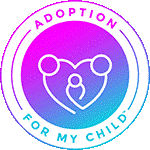What Is A Home Study?
A home study is a basic overview of your life and is required in every adoption to ensure you can provide a safe and stable home for a child. A home study including criminal background checks, your finances, health statement from your doctor and even an autobiography. Your home will also be reviewed to make sure to make sure there are not safety concerns.
After they evaluate everything your provider will let you know the things that need to be completed, or fixed to move forward on your home study.
Don’t Worry! It’s not a test. Use the following information to be proactive and prepare now for what will need to be completed. With an approved home study, you are one step closer to becoming a family!
Every state is different and may or may not require the same documents and procedures for your home study. It is important that you contact your state provider to verify the information that you will need for your adoption home study.
